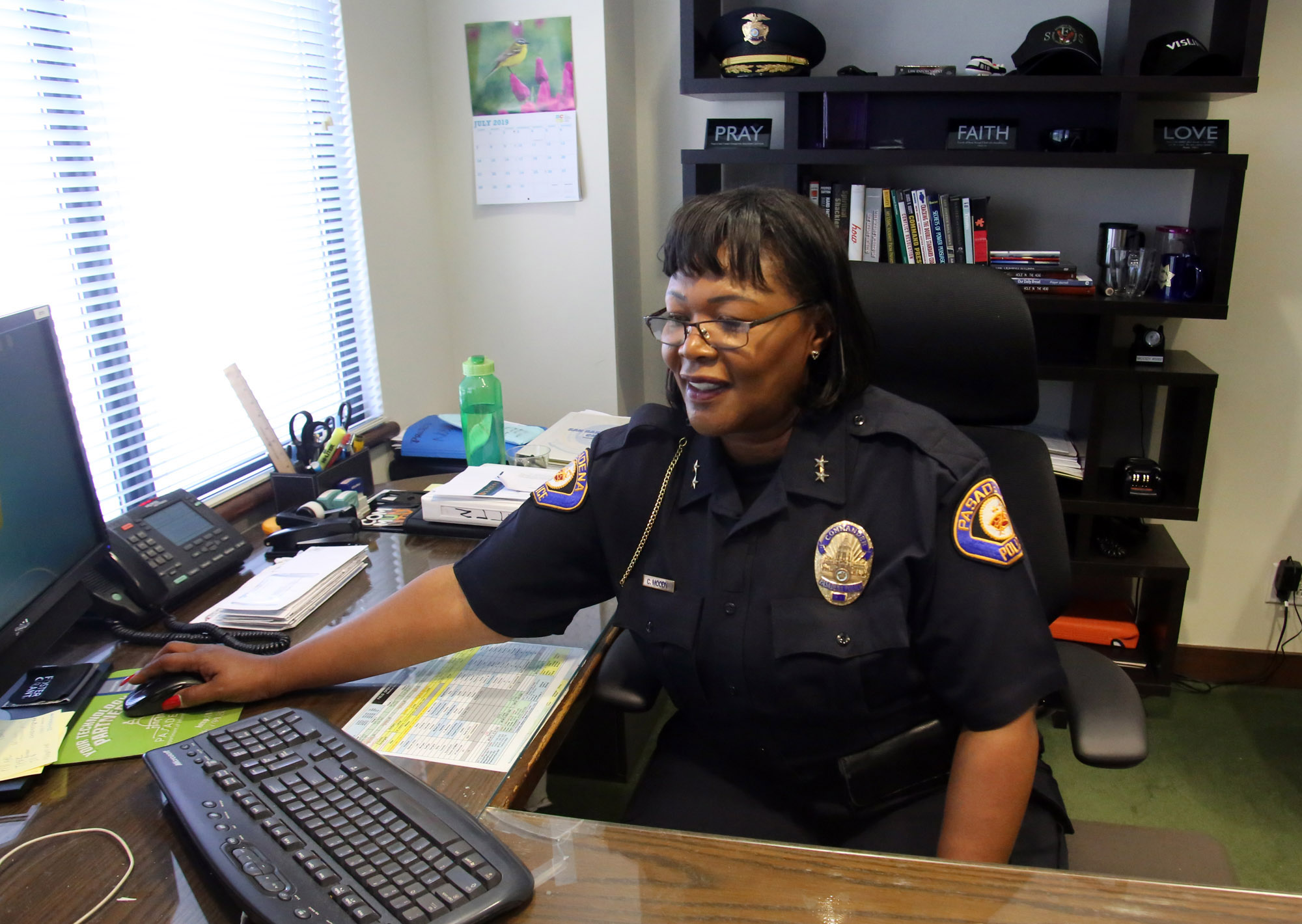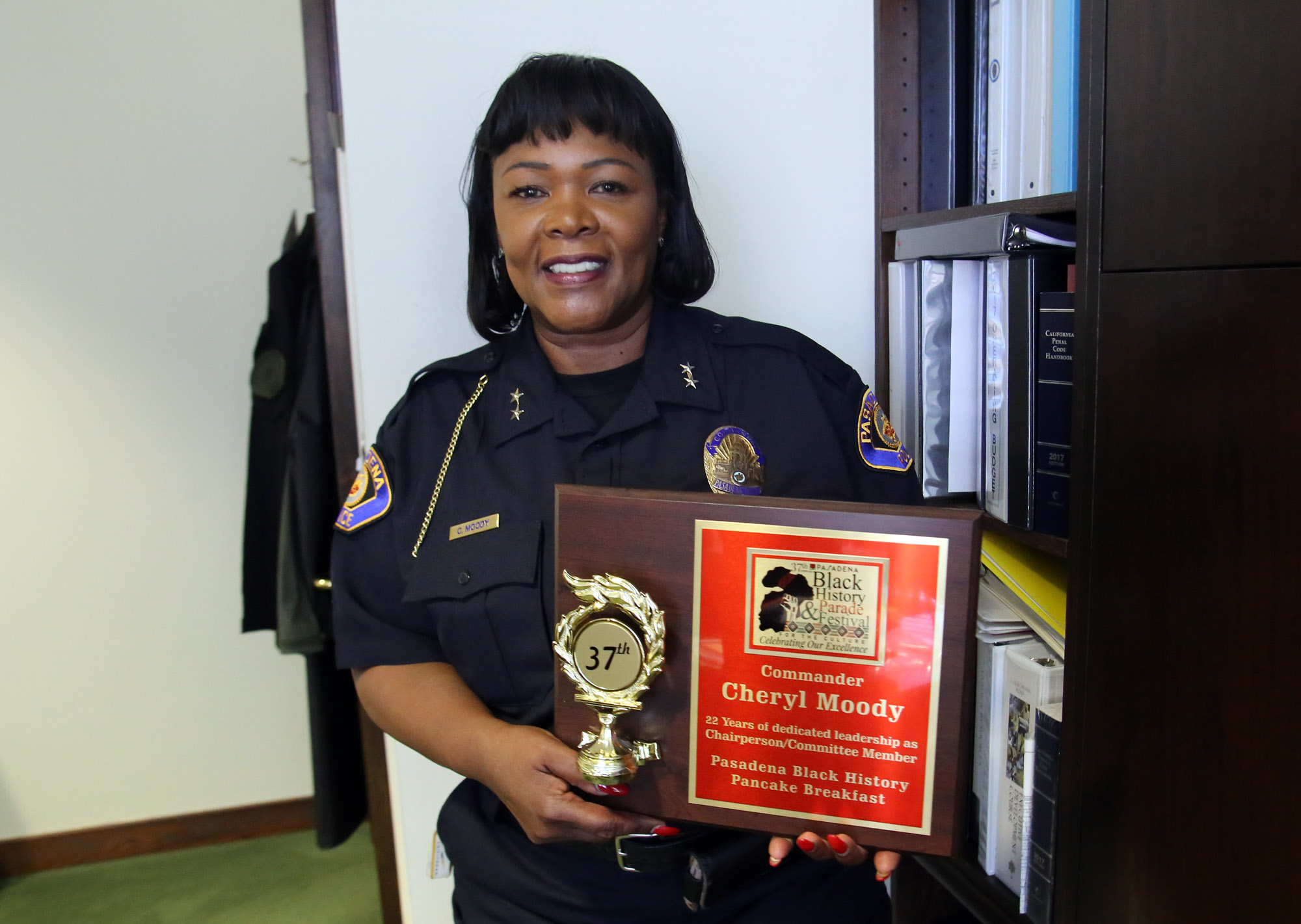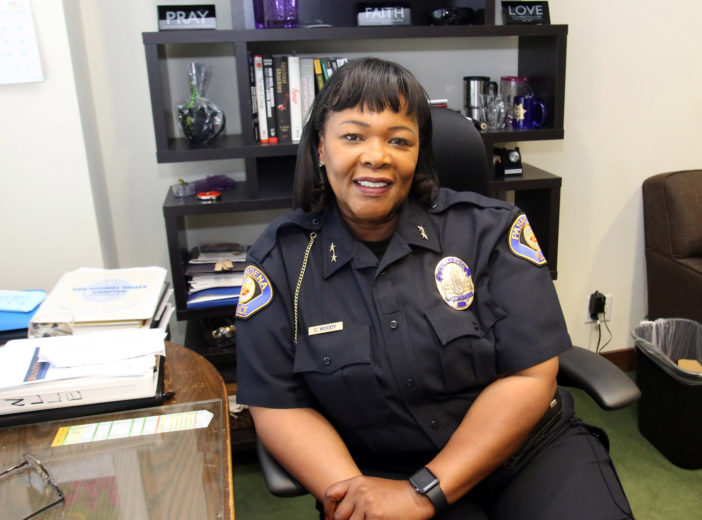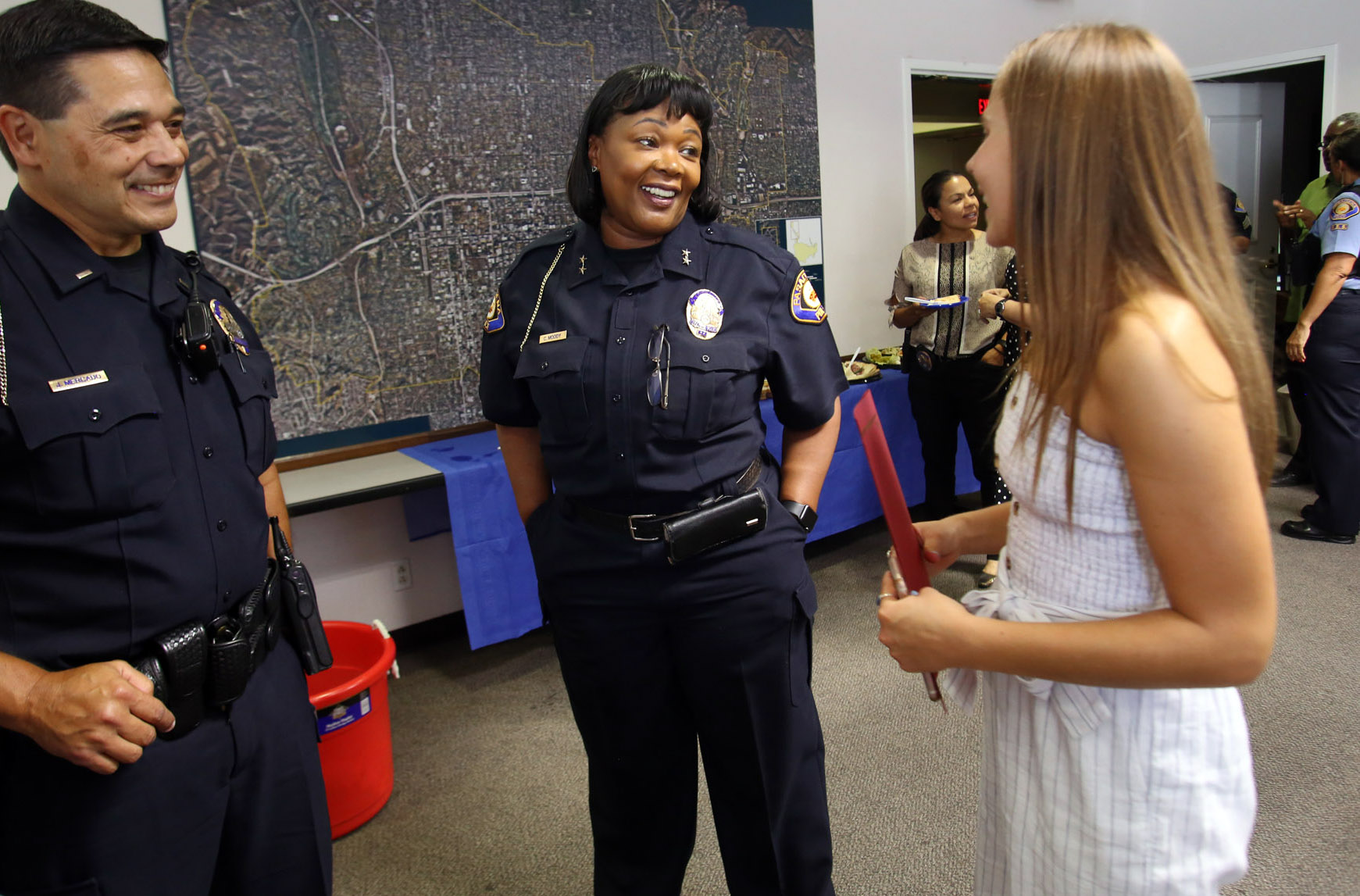The law enforcement career of Pasadena Police Department Commander Cheryl Moody has been marked by a series of “firsts.”
And with each milestone, Moody has been asked to take on more responsibility and higher levels of leadership.
As Pasadena PD prepares for its first major reorganization in decades, Moody is being promoted to acting deputy chief, making the 27-year veteran of the department the first African American woman to hold the position.
When Moody was promoted from lieutenant to commander five years ago, she was Pasadena PD’s first ever African American female commander.
As acting deputy chief, Moody will help spearhead the reorganization.
If all goes well, the “acting” part of the title will disappear and she will hold the title of deputy chief.
“We’re looking forward to her meeting those expectations and getting it done and providing something that we need here … from her perspective and experience,” Police Chief John Perez said. “She is in the position and getting it done. Now that she is deputy chief, we’re looking for more from her.”
Moody is up for the challenge and why shouldn’t she be?
She’s been taking on challenges since being a kid, growing up in Long Beach on what she described as “the rough side of town.”
Even then, Moody said she could see life from the perspective of the police, who were a common site in her neighborhood, and the residents, some who weren’t always making the best choices.
Moody joined the Air Force after getting an ultimatum from her parents – either go to college or join the military.

Commander Cheryl Moody from the Pasadena Police Department works at her desk at the Pasadena Police Department on July 18, 2019. During her career with the Pasadena PD she has worked several assignments including: patrol, neighborhood crime task force, research & development, police activity league and the special enforcement section.
Photo by James Carbone
“So I went into the military,” she said. “I didn’t want to go to college.”
Fast forward a few years and now Moody is a single mother raising two sons.
She was drawn to a career in law enforcement in 1992, when working for the Long Beach Police Department as a fingerprint classifier – a non-sworn position.
“I started watching the officers in the building and reading reports and I said I too can do this job because I want to help people,” Moody said. “I could see how people were being victimized and I’ve seen it growing up in my own experiences. So I wanted to go into law enforcement to make a difference.”
When she was hired by Pasadena PD at age 32, Moody was one of the older cadets going through rigorous police academy.
Just before getting off probation, Moody was assigned to Pasadena PD’s gang unit
“Because I had grown up around gang members, I didn’t have a problem interacting with them,” said Moody was one of two women in the 20-person unit. “They didn’t frighten me. It was just part of the community I grew up in.”
Cocaine use had been running rampant at the time, and Moody worked undercover as both a drug buyer and drug dealer.
She also worked undercover posing as a street walker during prostitution stings.
“It was hard to keep my composure when these guys would say things or try and do things,” Moody said. “It was hard to stay undercover in that capacity.”
She went on to work child abuse cases in the special victims unit, saying “it one of my hardest assignments.”

Commander Cheryl Moody from the Pasadena Police Department pose with an award she received during black history parade festival. Cheryl is one of the founding members of the San Gabriel Valley Chapter of the National Organization of Black Law Enforcement Executives (NOBLE) which started in 2003.
Photo by James Carbone
Said Perez, “She’s worked some of the more difficult positions.”
In August 1992, Moody was the department’s first ever Community Services Liaison, and played a role in establishing the duties of the newly formed position.
When the department integrated a SWAT team within the gang unit, Moody became the first female sergeant to complete SWAT training.
In 2003, Moody was one of the founders of the first San Gabriel Valley Chapter of the National Organization of Black Law Enforcement Executives (NOBLE), which encompasses six western states.
Along with being president of the board of directors for NOBLE, Moody serves on the board of the groups, “Women Leaders in Law Enforcement in Los Angeles County” and “the Links Incorporated,” a not-for-profit organization of professional women of color, who serve the community in a variety of ways.
All this involvement, said Moody, gives her a chance to know the community and the community a chance to know her.
During times when the African American community feels unfairly targeted by the police, Moody becomes a liaison.
“There have been times I’ve been able to talk to some of those (African American) groups and they relate to me a little bit better,” she said. “I can relate with them, being a law enforcement officer, being a female and having African American sons. My children are young African American men (now 30 and 35), so I understand the feelings. I think people trust me that I will tell them the truth. They might not like what I have to say, but they know I’m going to tell them the truth.”
Moody embraces her status as a role model to both women and people of color, in and out of law enforcement.
Essentially, said Moody, it’s about putting in the work.
“I let them know that if I can do it, you can do it,” she said. “I came here with a high school diploma, 32 years old. It just takes hard work and dedication and doing the job. There is no magic pill. There is nothing magic about it. It is just work.”
 Behind the Badge
Behind the Badge




